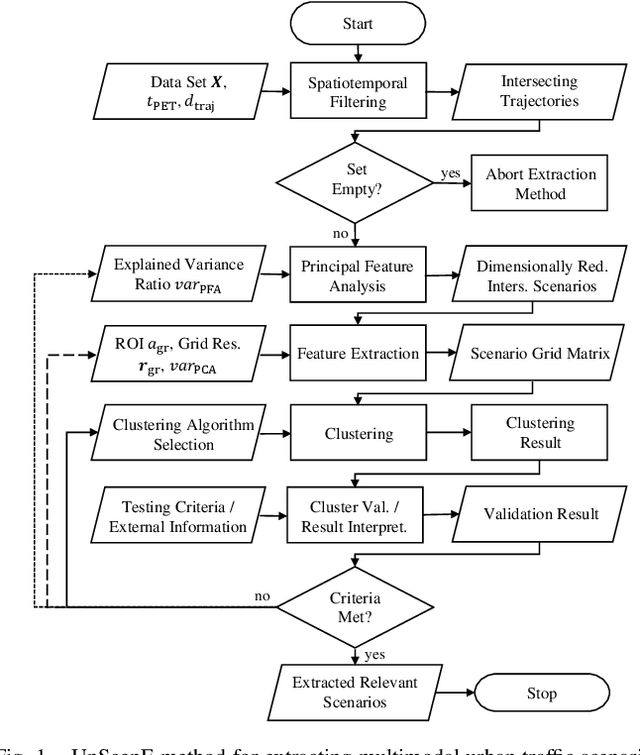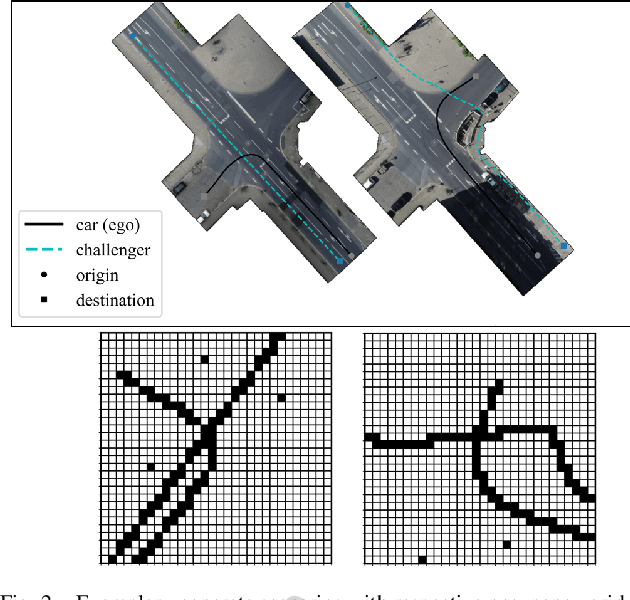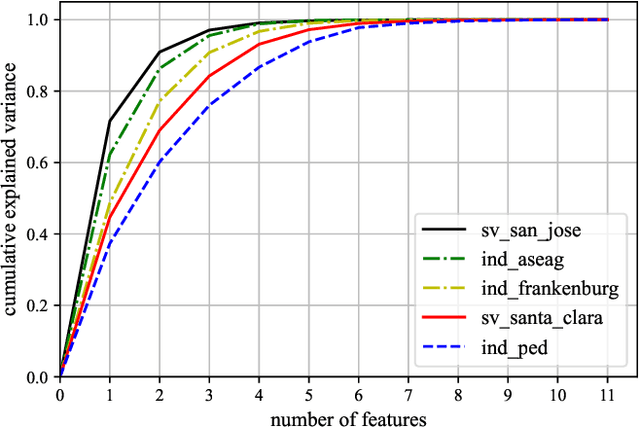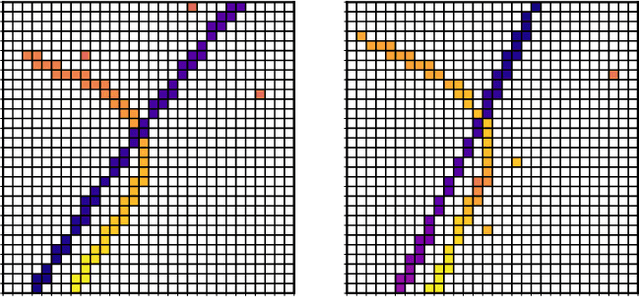Christoph Thiem
UnScenE: Toward Unsupervised Scenario Extraction for Automated Driving Systems from Urban Naturalistic Road Traffic Data
Feb 14, 2022



Abstract:Scenario-based testing is a promising approach to solve the challenge of proving the safe behavior of vehicles equipped with automated driving systems (ADS). Since an infinite number of concrete scenarios can theoretically occur in real-world road traffic, the extraction of relevant scenarios that are sensitive regarding the safety-related behavior of ADS-equipped vehicles is a key aspect for the successful verification and validation of these systems. Therefore, this paper provides a method for extracting multimodal urban traffic scenarios from naturalistic road traffic data in an unsupervised manner for minimizing the amount of (potentially biased) prior expert knowledge needed. Rather than an (expensive) rule-based assignment by extracting concrete scenarios into predefined functional scenarios, the presented method deploys an unsupervised machine learning pipeline. It includes principal feature analysis, feature extraction with so-called scenario grids, dimensionality reduction by principal component analysis, scenario clustering as well as cluster validation. The approach allows exploring the unknown natures of the data and interpreting them as scenarios that experts could not have anticipated. The method is demonstrated and evaluated for naturalistic road traffic data at urban intersections from the inD and the Silicon Valley dataset. The findings encourage the use of this type of data as well as unsupervised machine learning approaches as important pillar for a systematic construction of a relevant scenario database with sufficient coverage for testing ADS.
 Add to Chrome
Add to Chrome Add to Firefox
Add to Firefox Add to Edge
Add to Edge